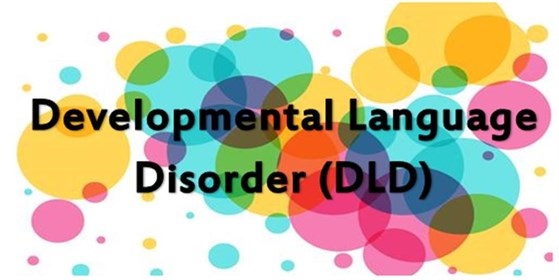Language learning seems to be an automatic process until there appears to be a difficulty. Some children do not find language learning easy.
These children may have difficulties with one or more of the key components of language including understanding and using language.
When a child has difficulties talking and/or understanding language, the child is said to have Developmental Language Disorder (DLD). Developmental Language Disorder refers to difficulties with understanding and using language.
It is diagnosed when a child’s language skills are persistently below what is expected for the child’s age and occurs in the absence of a known biomedical condition (no obvious reason for these difficulties such as hearing difficulties or physical disabilities that explain them). It is a condition about the brain and not caused by parents. It is a hidden disability and looks different for everyone.
DLD affects people of all ages, gender, ethnicity and race across the world. It affects literacy, learning, friendships (ability to communicate effectively with others) and emotional well-being of the individual.
Because DLD is a hidden disability, it can make things really difficult for children with DLD as no one sees their disability. The language difficulties change with age.
DLD Awareness Day
In October 15 every year, DLD Awareness Day is celebrated to create awareness of DLD. On this day, families, therapists, teachers among others share information about DLD to create awareness of this hidden disability.
Children with DLD may have small vocabulary, difficulty understanding questions and instructions, difficulty asking questions, difficulty reading and writing, difficulty expressing themselves (ideas and thoughts), difficulty finding the right words and as a result low self-esteem among others.
DLD does not affect intelligence.
Supporting people with DLD
DLD is a lifelong disability. This means that people do not grow out of DLD. Children with DLD grow up to become adults with
DLD. They therefore need support across the lifespan.
The support needed for people across different ages differ. These are some of the general ways to support people with DLD:
• Get a child’s attention before talking
• Allow people with DLD more time to respond. This offers them time to think about what they want to say.
• If you are a teacher, parent or colleague, you can help first identify people with difficulties with understanding and talking. They can seek help when identified. Support from therapists, teachers and parents make a huge difference.
• Keep your sentences short and simple when talking to a child with DLD. Avoid using long sentences.
• When using new words with your child, explain what it means.
• Check with adults with DLD if they understood what you said. Rephrase it if they didn’t.
• In situations where there is a lot of information, summarise it for the person with DLD.
Without support, children with DLD may grow to become adults who think they are not good enough and may have severe mental health difficulties.
There is support for people with DLD. See a speech and language therapist if you are concerned about someone with speech and language difficulties.
The writer is Speech & Language Therapist/Clinical Tutor, University of Ghana. E-mail: jobamp@hotmail.com

